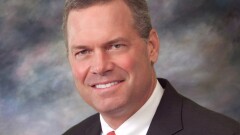The banking industry has some work to do to improve its reputation.
After years of steadily climbing, banks’ reputation scores, as tracked by American Banker and the Reputation Institute,
Worse, of the 16 industries the Reputation Institute tracks, only one — telecommunications — currently has a worse reputation than banks.
Banks are graded on seven dimensions — products and services, innovation, leadership, workplace, performance, citizenship and governance — and scored on a 100-point scale. A score of 80 or above is considered excellent; 70 to 79.9 is strong; 60 to 69.9 is average and anything below 59.9 is weak or poor.
Twenty-eight of the 40 banks had lower customer scores in 2019 than in 2018 and only two — USAA Bank in San Antonio and Huntington National Bank in Columbus, Ohio — had scores above 80, down from six in 2018.
Among noncustomers, the numbers were even worse. All but four banks saw their scores decline year over year and more than half had scores below 59.9. Only one, USAA, has a strong reputation among noncustomers.
Still, there is some good news in the data.
By and large, bank customers have positive feelings about their banks. Of the 40 banks evaluated in this year’s American Banker/Reputation Institute Survey of Bank Reputations, 35 were considered to have strong or excellent reputations with existing customers.
And many banks can take comfort in the fact that, while their overall scores may have slipped a bit, they moved up in the customer rankings. Associated Bank in Green Bay, Wis., climbed from No. 34 in the 2018 rankings all the way up to No. 14 this year. MUFG Union Bank in San Francisco jumped 14 places, to No. 10.
Here are the 10 biggest movers with customers in 2019.















